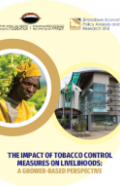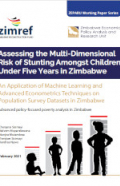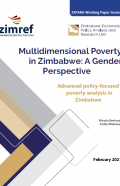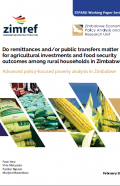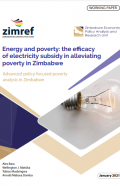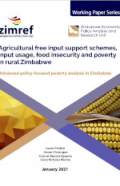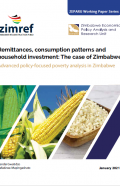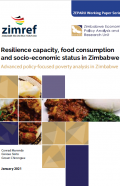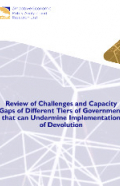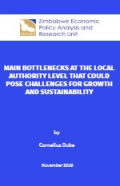The primary objective of this study was to assess the scope for shifting towards other alternative crops as sources of livelihoods for tobacco farmers.
Research Studies
The study aimed to identify the key predictors of child stunting and quantify the multi-dimensional risk exposure amongst children in Zimbabwe.
This study explores gendered multidimensional poverty at household level and its heterogeneities across pertinent socio-demographics in Zimbabwe, over time
This study investigates whether private transfers, specifically, migrant remittances, and public transfers, that is, government support programs, matter for agricultural and food security outcomes of rural households in Zimbabwe using descriptive statistical methodologies on a recent household survey.
The study analyses the importance of electricity subsidies on poverty reduction in Zimbabwe Electricity subsidies are an instrument used to alleviate poverty in developing countries such as Zimbabwe.
This study evaluated the association between free seed support and poverty and food security outcomes among smallholder farmers using the Zimbabwe National Statistics Agency (ZIMSTAT) Poverty, Income, Consumption and Expenditure Survey (PICES) and Agriculture Productivity Module (APM) survey of 2017
The study sought to investigate the impact of remittances on household expenditure.
The study investigated the heterogenous effects of resilience capacity and pillars on food consumption of different socio-economic classes of households
This study sought to assess the skills levels/mix; competences; monitoring and evaluation; and implementation capacity of the three tiers of government to fulfill functions bestowed upon them by the Constitution of Zimbabwe and suggest policy interventions that Government may adopt to ensure the tiers of government are adequately strengthened to effectively implement devolution
Zimbabwe is implementing economic devolution where provinces and districts will act as economic hubs competing with each other to attract investment and transform themselves into economic zones. This study aims to investigate the key success factors in implementing devolution in Zimbabwe.
Evidence abounds that Zimbabwe is not competitive. This low competitiveness weighs down on its economic growth prospects.This study analyses Zimbabwe’s competitive position and assesses the factors that influence the country’s competitiveness.
Local authorities play a crucial role in service delivery making it critical in the implementation of devolution.This study is seeks to identify factors within the control of urban councils that can be addressed to compliment devolution.





